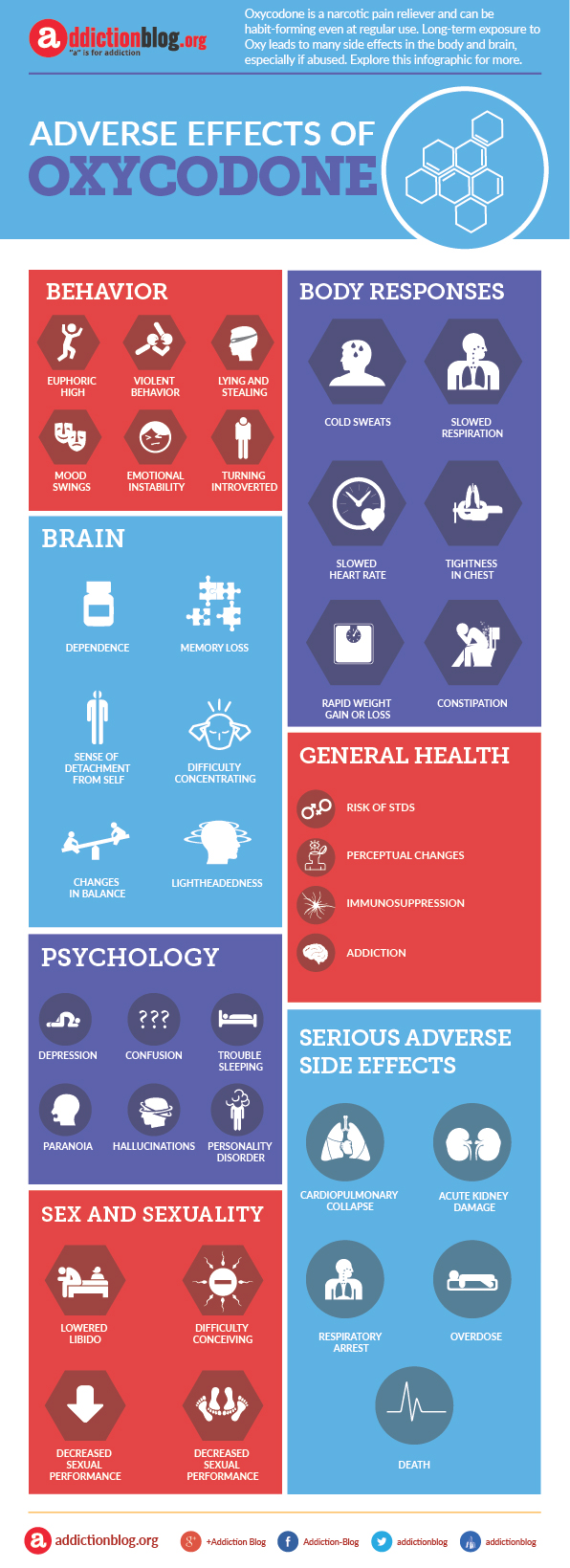Oxycodone side-effects
Using oxycodone chronically for a longer period of time can have many different side-effects. Although it can be helpful for people who are suffering from chronic pain, long-term use or illicit abuse can impact your psychological and physiological well-being.
Some negative consequences include dependency, feeling high, occurrence or worsening of anxiety or depression, etc. What other risks and dangers of oxy? Check out the infographic above to learn more, then post your questions or feedback in the section at the end of the page.

Mental and psychological effects
Oxy has the same effects on the brain and central nervous system (CNS) like other opioid narcotics, such as heroin or morphine. That’s why oxycodone got the name “hillbilly cocaine”. So, similarly to other opioids, this medication can have the following effects:
- addiction
- confusion
- constipation
- dizziness
- liver damage
- kidney damage
- nausea
- vomiting
Serious physical damages
- coma
- death
- kidney and liver failure
- respiratory depression
- risk of heart attack
- severe liver damage
Sex and fertility risks
Oxycodone has the ability to cause changes in human hormonal levels and throw them off balance, resulting in:
- cessation of menstrual periods
- decreased libido
- difficulty having/keeping an erection
- disturbed menstrual cycle
- testosterone depletion
- lowered sperm count
In addition, oxycodone abuse may lead to someone having risky sexual encounters, and getting STDs, Hepatitis B or C, HIV/AIDS.
Adverse oxycodone effects questions
Like our infographic? Feel free to share it with your connections and spread the awareness about the negative effects from abusing opioid painkillers. For any further questions, please post them in the comments section below and we’ll get back with you personally and promptly.








Related Posts